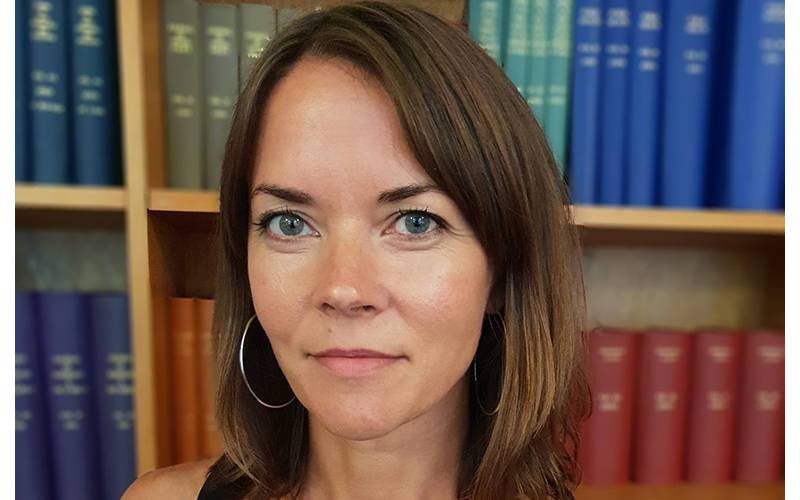This month we speak to Dr Rebecca O'Connell to find out how her research on children, families and food is improving the health of the public.
 What is your role and what does it involve?
What is your role and what does it involve?

I am a Reader in the Sociology of Food and Families at the Thomas Coram Research Unit, UCL Institute of Education. Since 1973, TCRU has carried out policy relevant research on children and families. I joined as a postdoc in 2008 to develop the Unit’s research on children, families and food. I have collaborated with colleagues within and beyond TCRU on mixed and multi methods research projects in the UK and internationally. I also teach an undergraduate module on Food & Society, a Masters module on ethnography and am involved with the new UK Food Systems Centre for Doctoral Training (UKFS-CDT). From 2011-2017 I was co-convenor of the British Sociological Association Food Study Group and since 2019 I have been a trustee of the charity School Food Matters.
How are you improving the health of the public?
Most recently I led, as Principal Investigator, a European Research Council funded study of families and food poverty in three European countries – the UK, Portugal and Norway (2014-2019). This was a mixed methods project that involved an international team and included secondary analysis of large scale international and national data, in addition to qualitative research with children and parents in 133 low-income families. With Professor Julia Brannen I have co-authored an Open Access book on the study, Families and Food in Hard Times, that will be published by UCL Press in May 2021. Thanks to additional funding from the UK Higher Education Innovation Fund we collaborated with the UK charity Child Poverty Action Group to publish and promote an Open Access book, Living Hand to Mouth, on children’s experiences of food poverty in the UK. The research has contributed to a growing awareness of the direct and indirect effects of poverty on children’s diets and lives and was cited by one London Borough in an announcement of their expansion of free school meal provision. We have engaged with many different audiences, including a recent talk for the All Party Parliamentary Group on School Food, chaired by Sharon Hodgson MP.
What do you find most interesting or enjoyable about your work?
I most enjoy working as a member of a team, towards shared goals, collaborating in designing and carrying out research that contributes to addressing real world problems.
How have cross-disciplinary collaborations shaped your research?
Cross-disciplinary collaboration has been at the heart of TCRU’s work since it was established by the psychologist Jack Tizard as a unit dedicated to the coordination of research projects that would ensure the building up of multi-disciplinary expertise. Research on children and families’ food and eating necessarily draws on insights and approaches from a range of disciplines. The teams I have led and worked in have included researchers with different disciplinary training and methodological expertise: sociology, social anthropology, history, psychology, social policy, nutrition and statistics. Working as a member of an international team also requires and fosters a comparative viewpoint. The importance of cross-disciplinarity and international collaboration cannot be overstated, particularly for UK researchers working in the post-Brexit world.
What advice would you offer to others interested in developing cross-disciplinary research?
I’ve learned from the generosity and patience of team members committed to understanding shared research problems from different disciplinary and methodological perspectives. Working across disciplines – or methodologies, or countries – can require what Sociologist Mark Harvey calls ‘stretching’ concepts, in order to embrace different perspectives. It also requires funding that gives teams the time - and researchers with the inclination - to articulate their assumptions and ways of working so that colleagues can develop literacy, competence and confidence in understanding phenomena from different vantage points.
What's next on the research horizon for you?
Our society faces many pressing problems, including in the field of food and families. An immediate concern is how we, as researchers, can contribute to building just futures.
If you could make one change in the world today, what would it be?
Covid-19 has not only exposed and exacerbated the stark inequalities in our society but also highlighted the vital role of social solidarity in mitigating some of its effects. Redistribution of wealth, rather than more austerity, must be a priority and should include commitments not only to ensuring adequate household incomes based on Minimum Income Standards, but making publicly available the collective resources necessary to rebuild our social infrastructure.
 Close
Close

